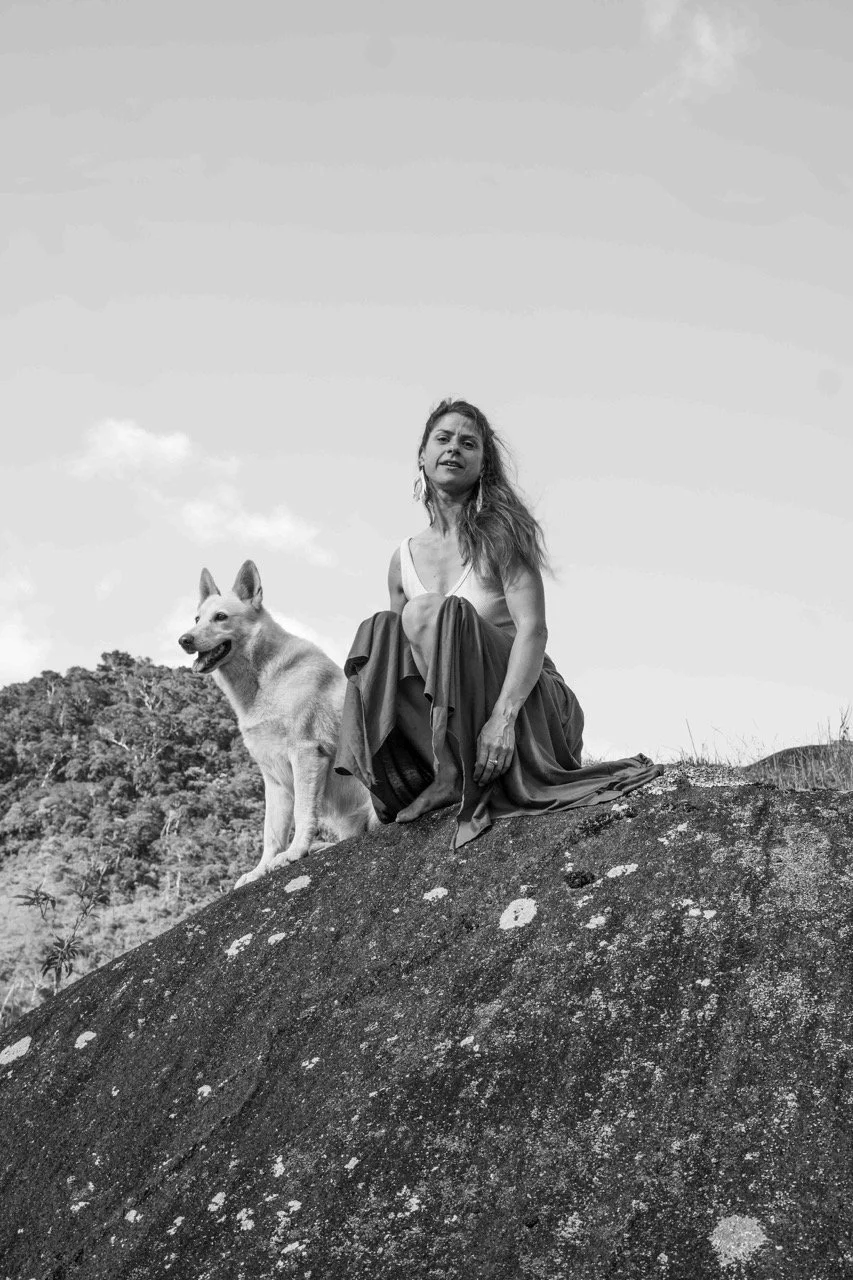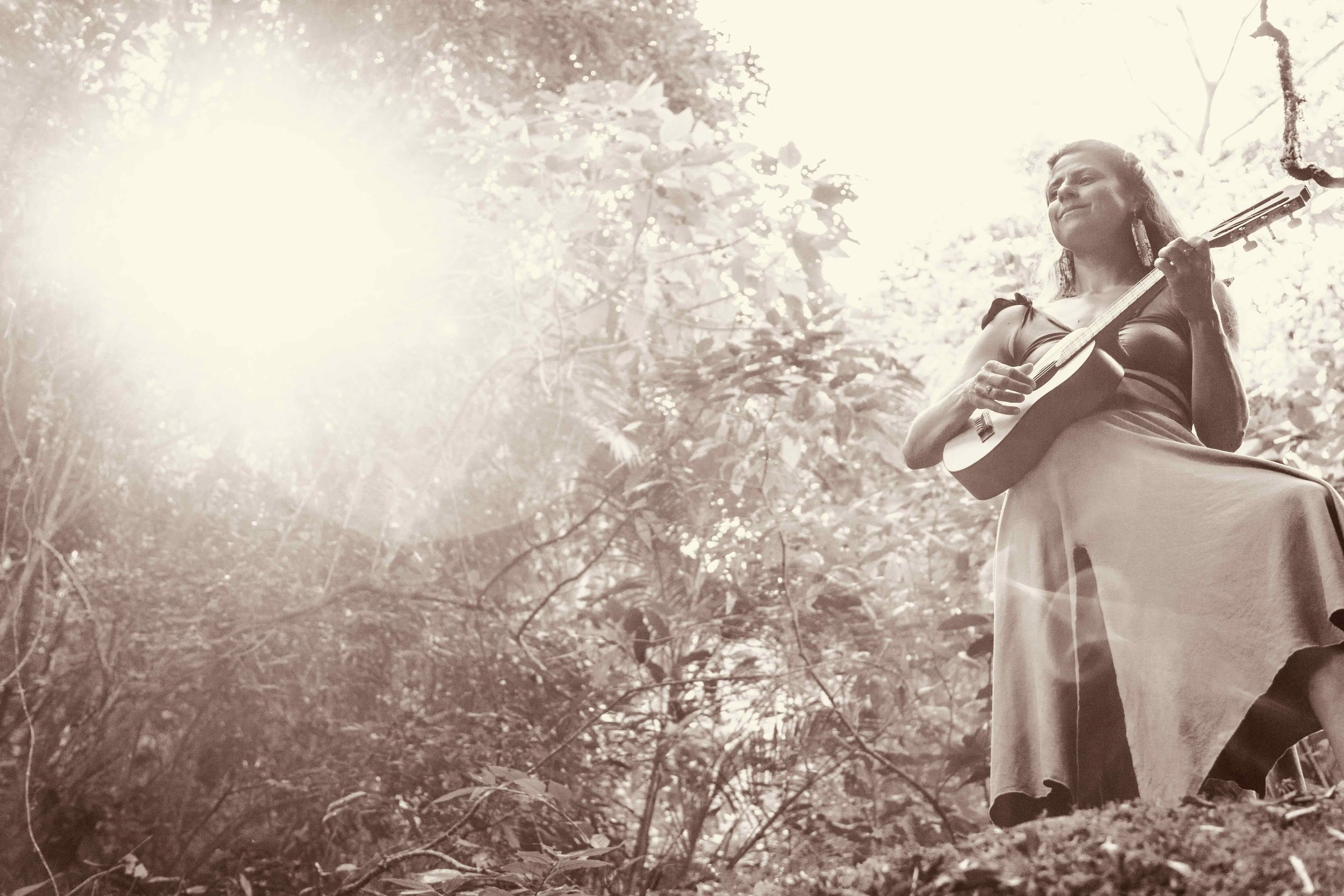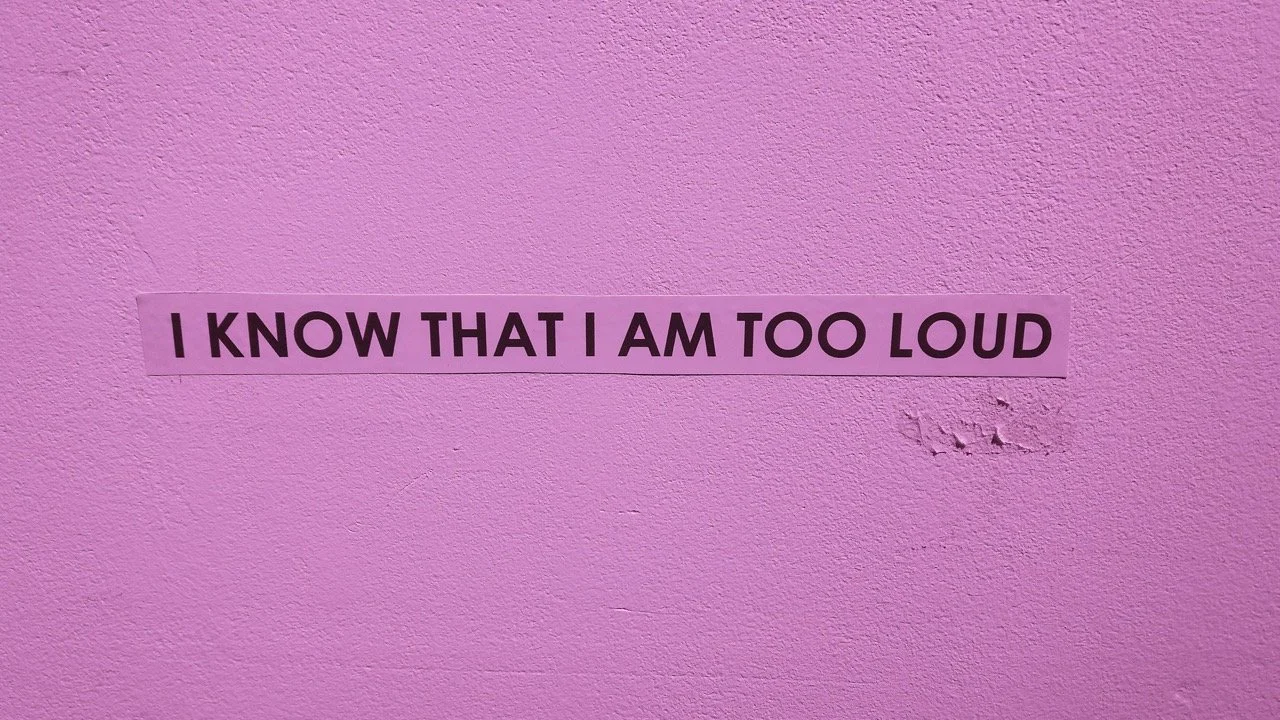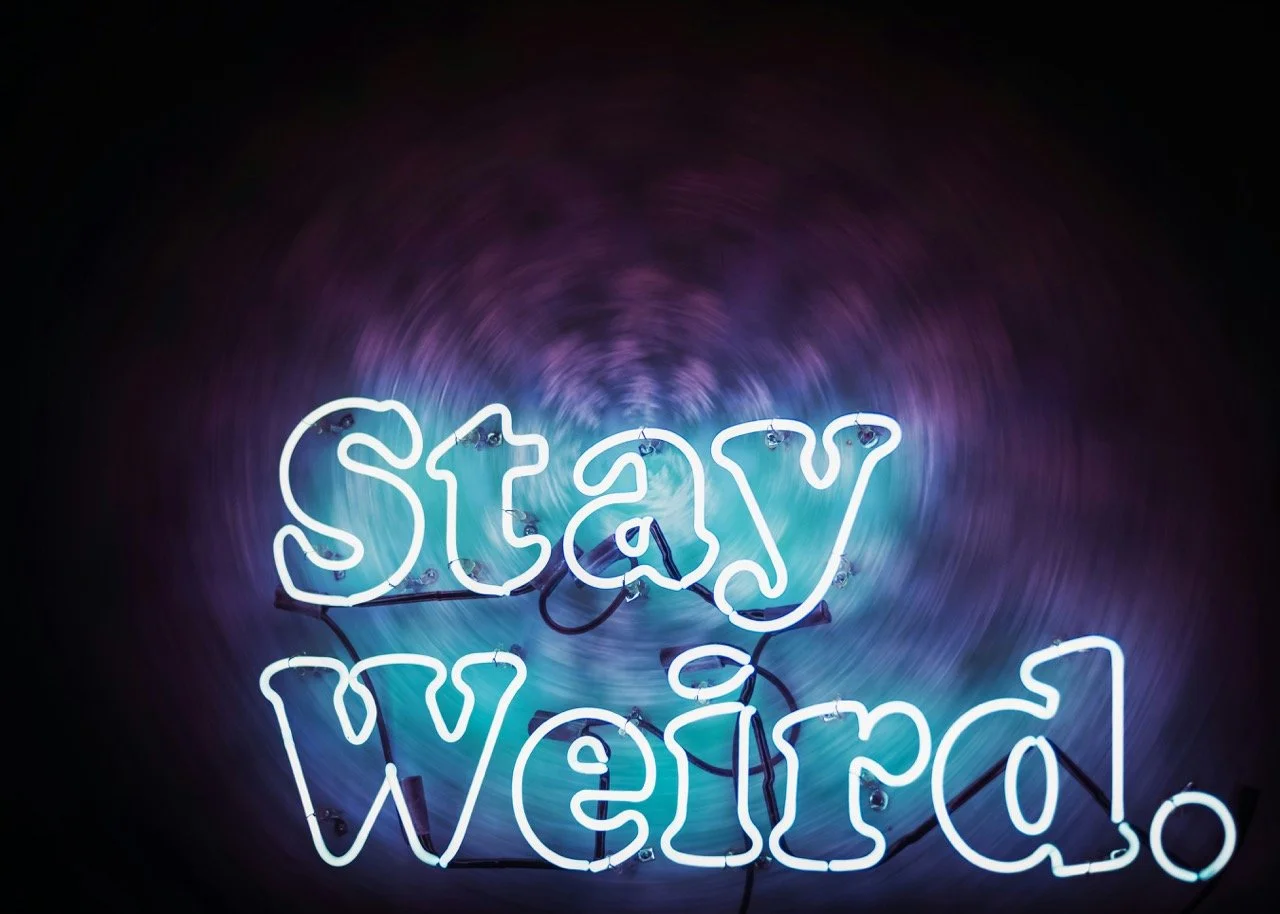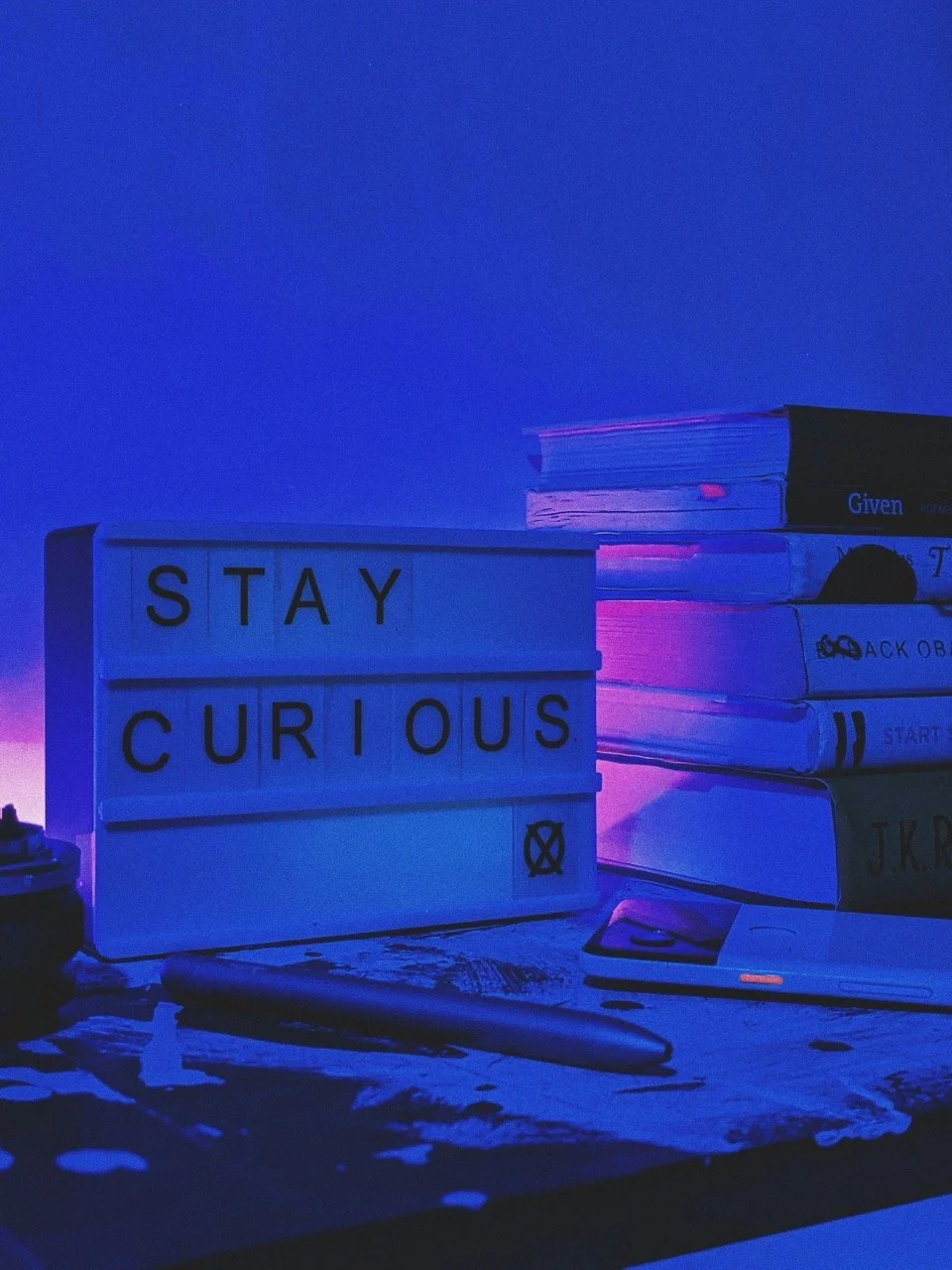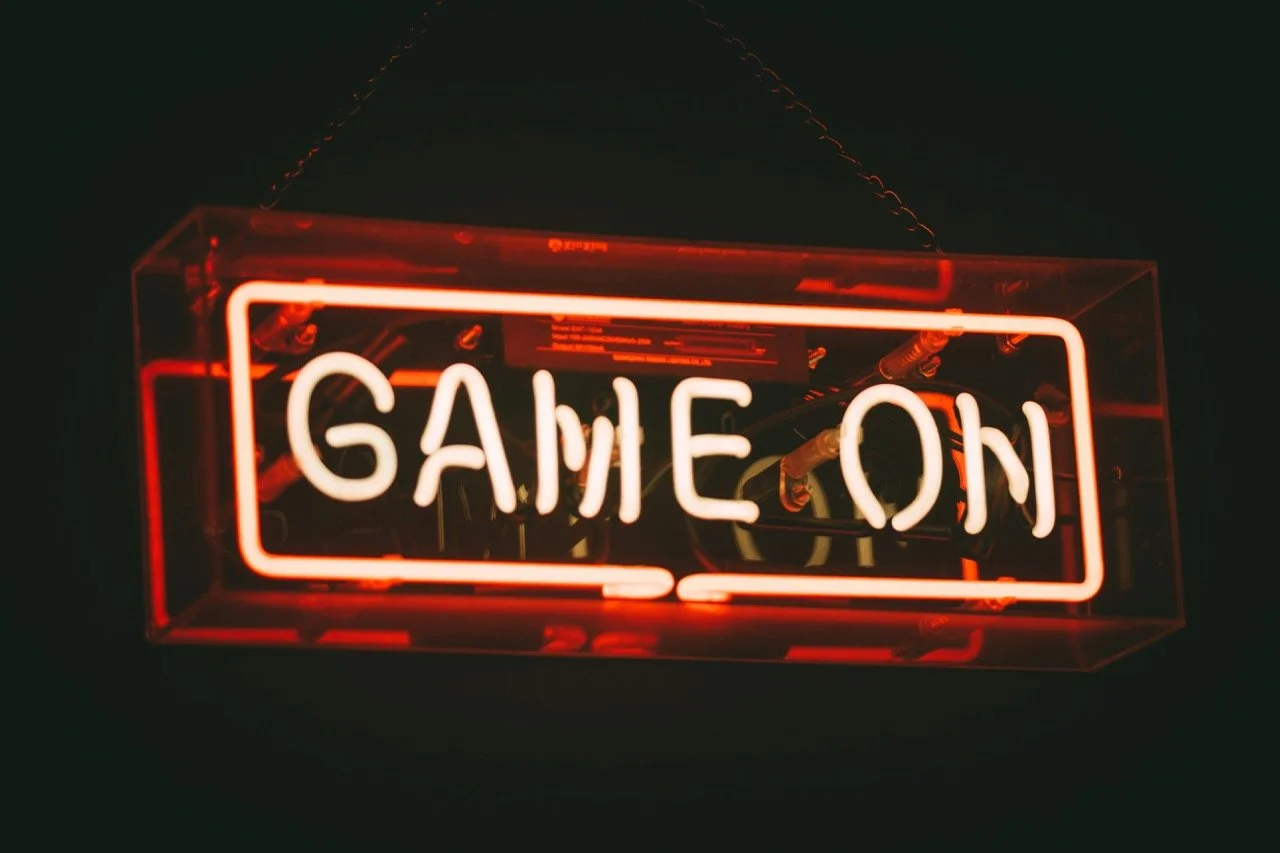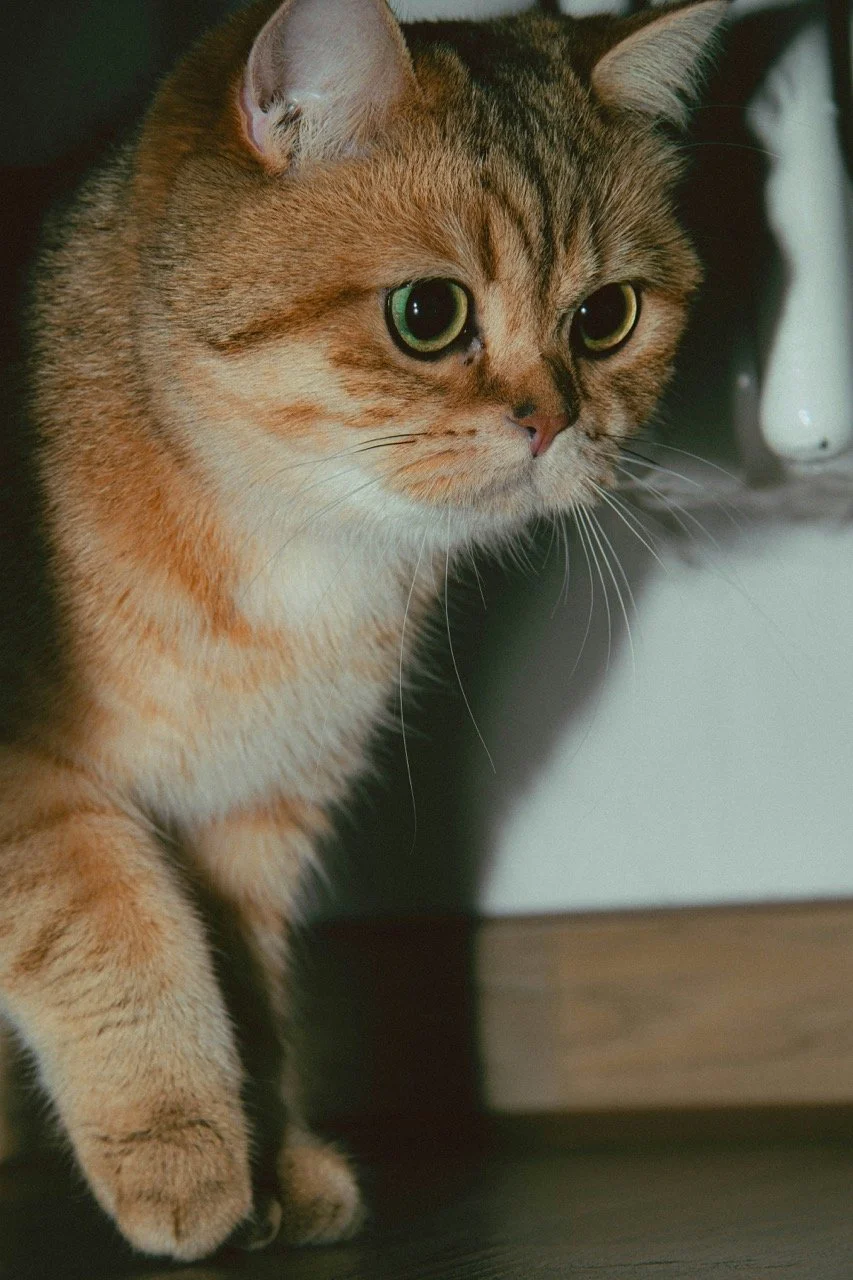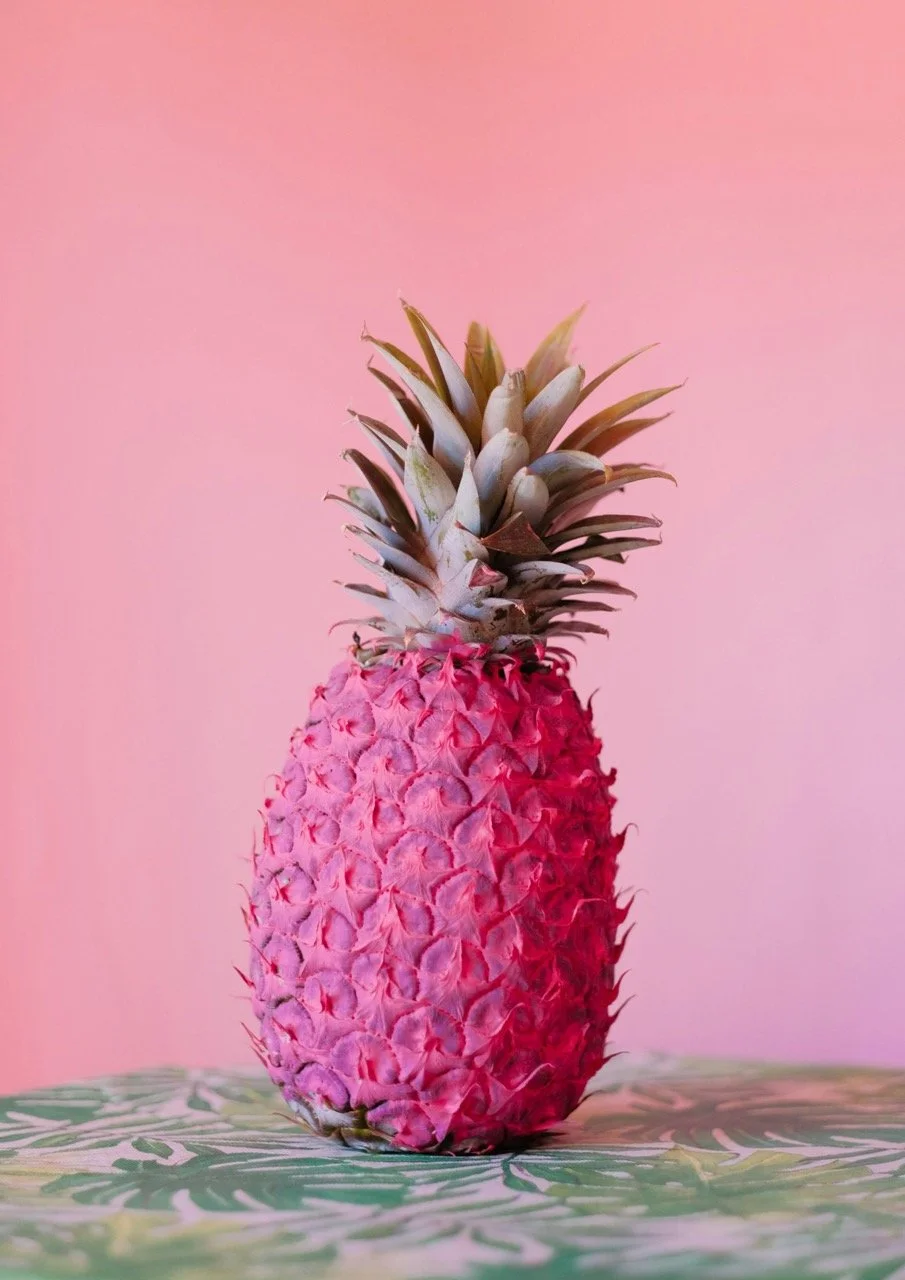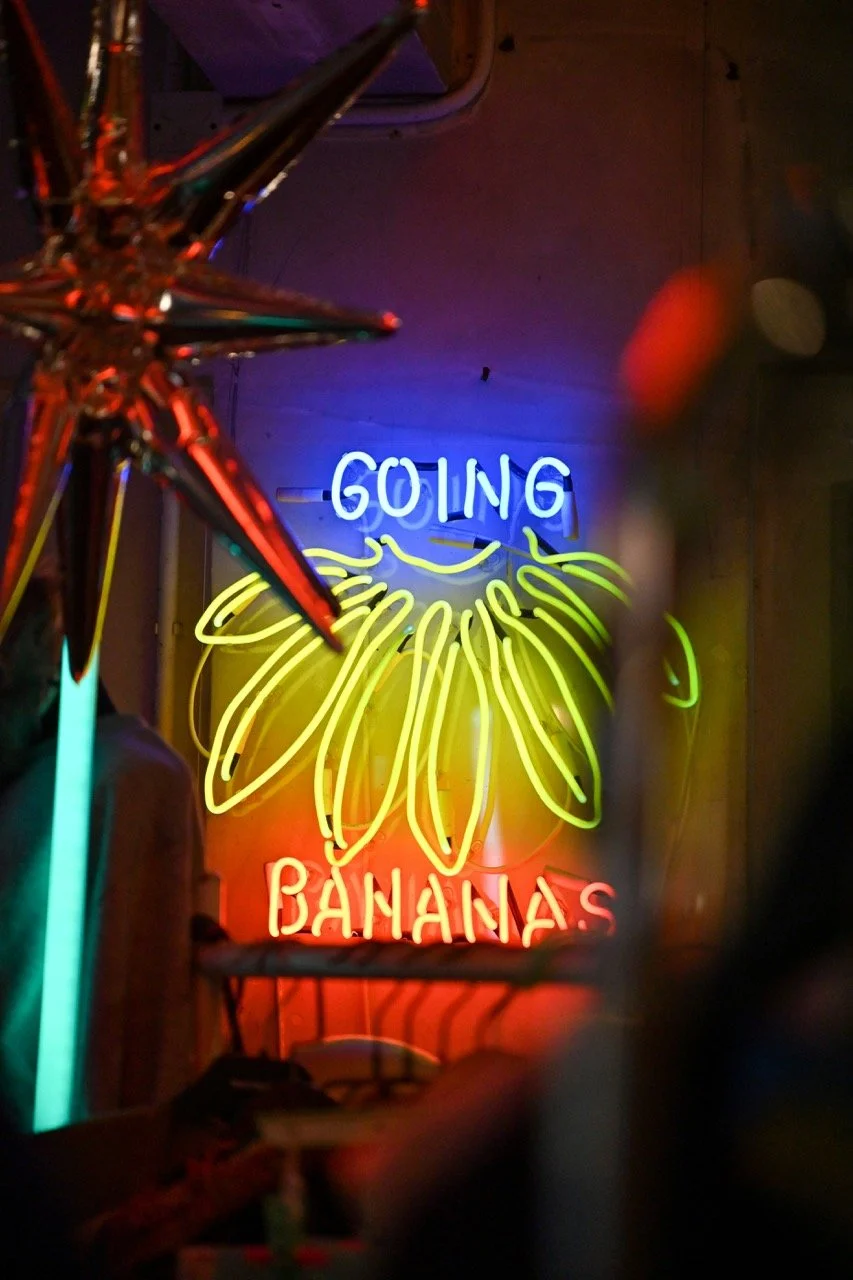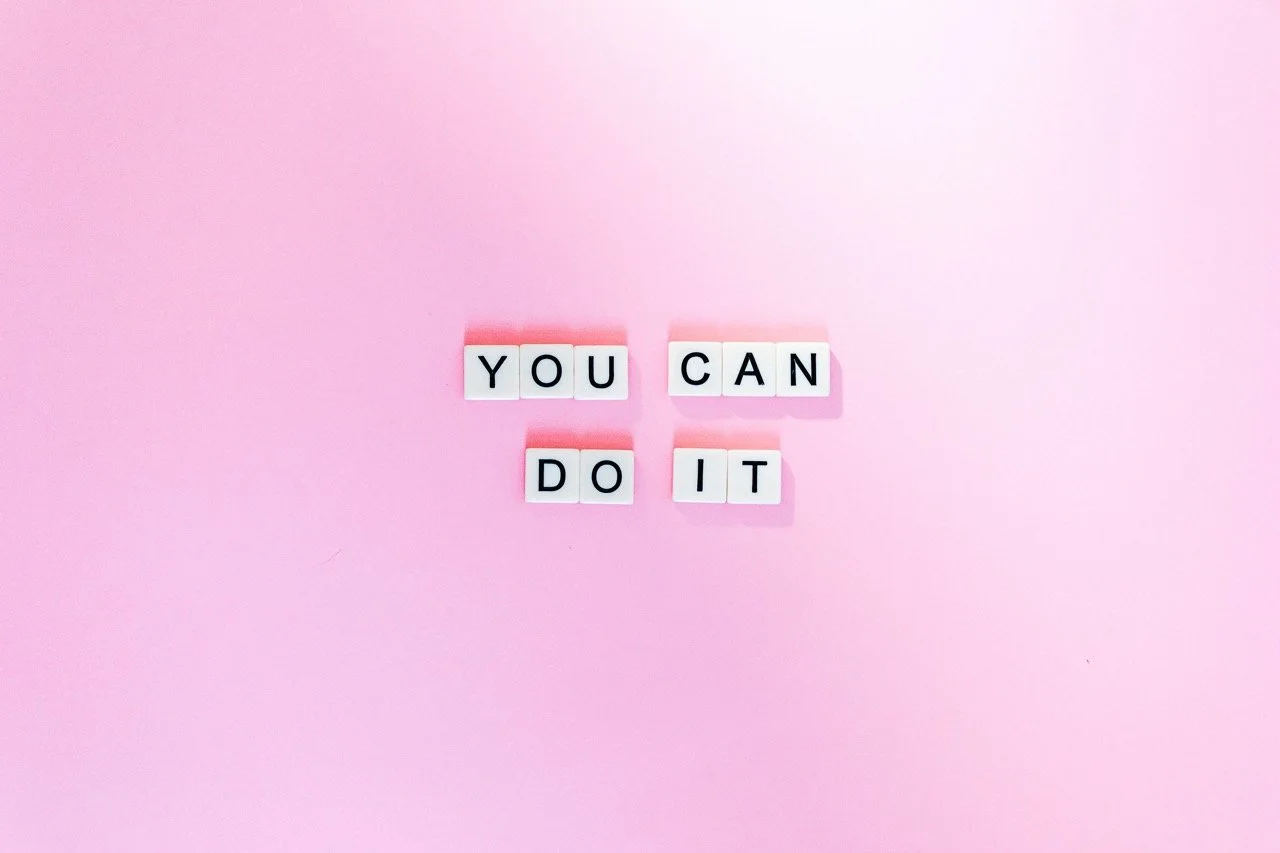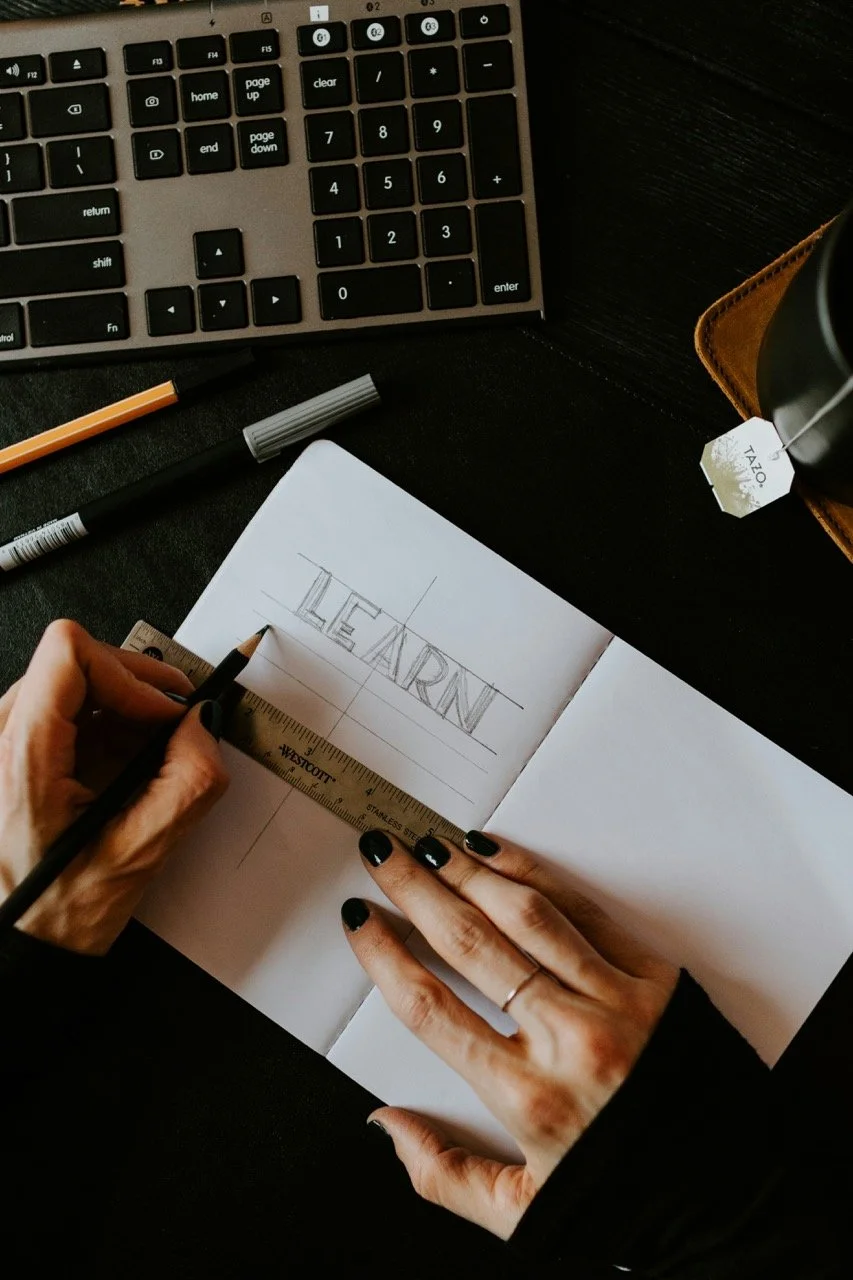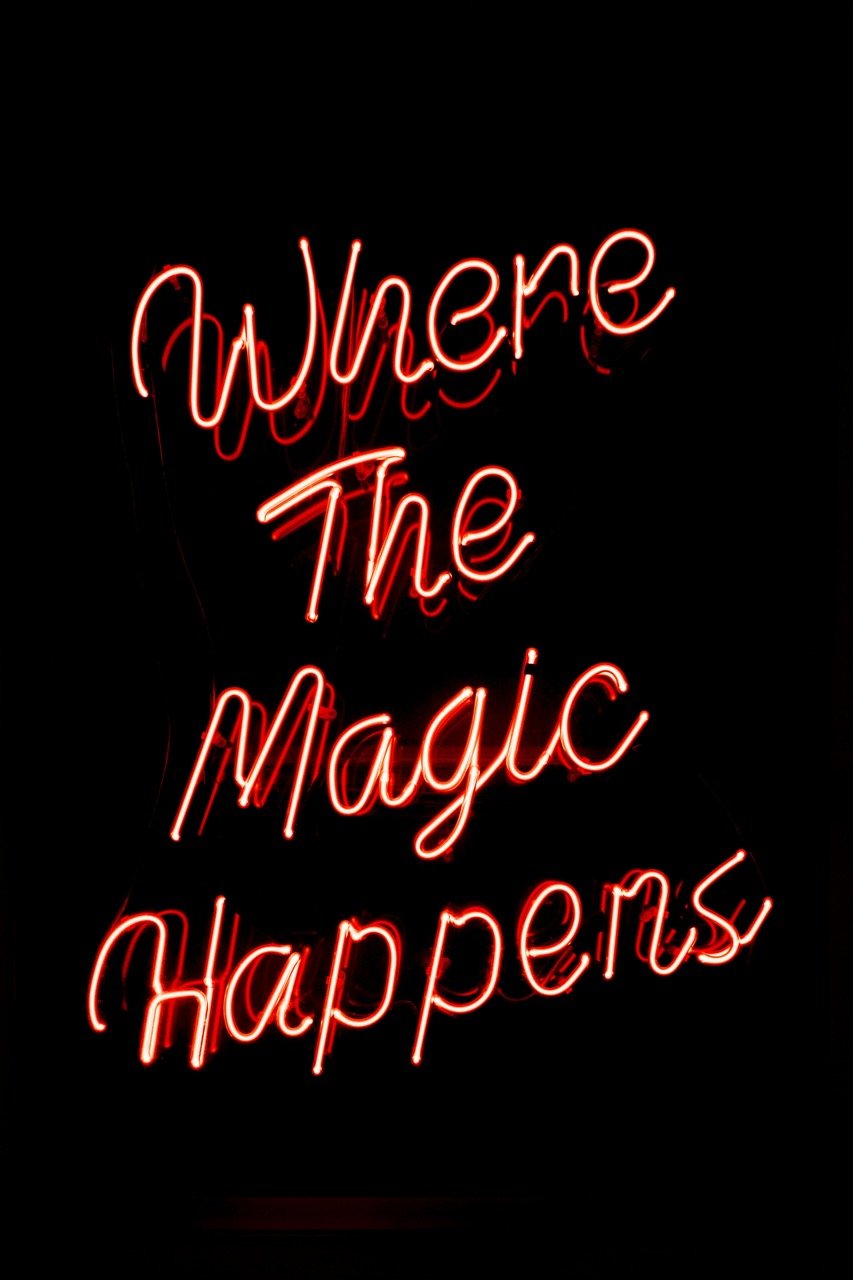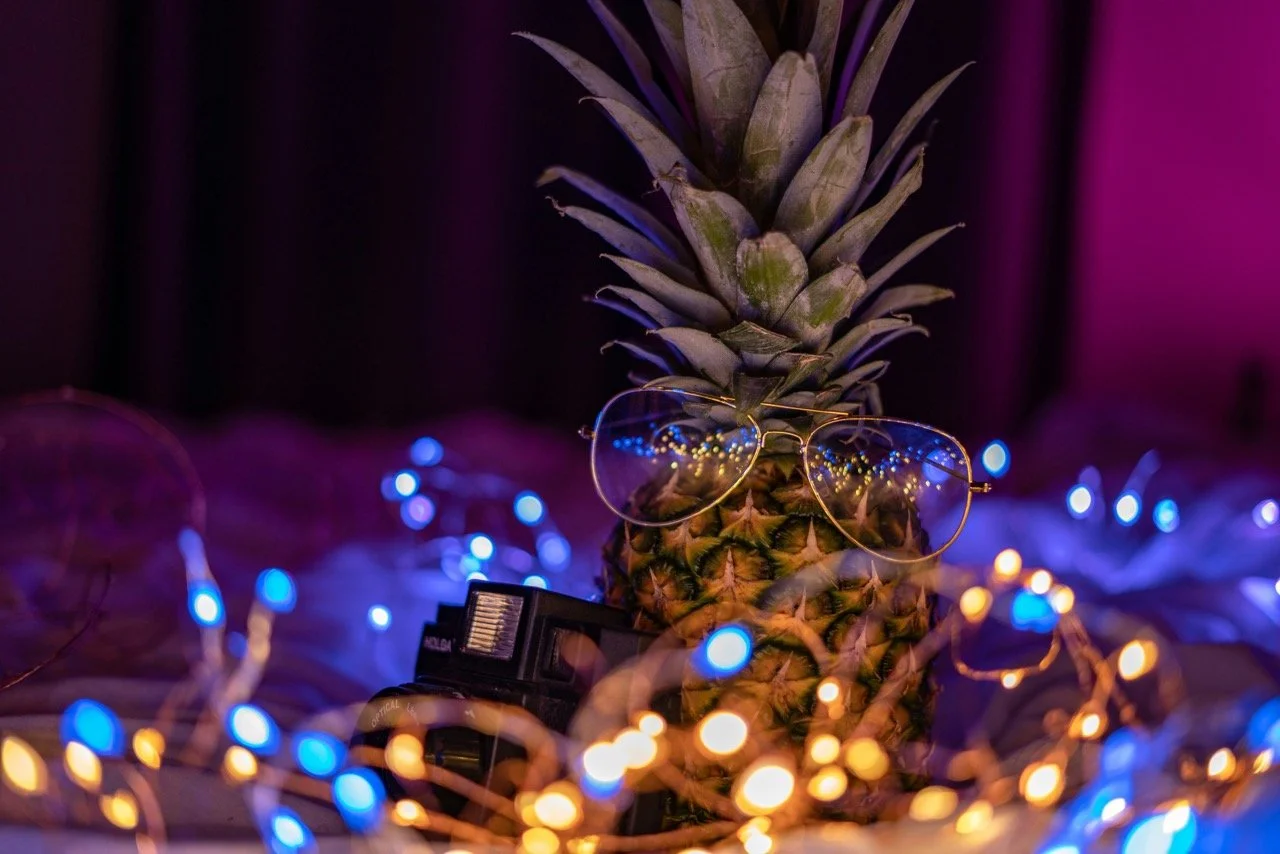The Creative Musician’s
Guide to Embracing Imperfection
How to Let Go, Enjoy the Process, and Fuel Your Creative Growth
Welcome
Thank you for being here.
I want to acknowledge the courage it takes to walk the path of a musician, especially when doubt, fear, and self-criticism can sometimes feel overwhelming.
If you’re reading this, it means you are passionate about your craft, and I honor that commitment. I know firsthand how hard it can be when your inner critic takes over, making it difficult to enjoy the creative process.
The intention behind this guide – and my work as a whole – is to support passionate musicians like you in overcoming these roadblocks.
I feel honored to witness musicians like you invest their energy and focus into following their deepest calling, and I am grateful for the trust you place in me by reading this guide.
Why I created this guide
When I started my own journey, I often wished there was someone to transparently share what it’s really like to deal with the mean inner dialogue that sometimes comes up. I wished for someone to tell me that it’s okay to create messy, “shitty” music, and that perfection is not the goal – self-kindness and creative play are.
The truth is, we all face moments of doubt.
But in those moments, I’ve found that the key is to let go of the need for perfection and simply enjoy the act of creating.
This guide is here to help you do just that.
I don’t pretend to be the perfect or most refined musician myself.
Instead, I offer an honest, vulnerable perspective, hoping that this transparency inspires you to continue walking the path of music and to alchemize your life experience through it. This is what I feel is the true alchemy of music and transformative power of art.
Content
Introduction
My Path with Music
Part 1
Letting Go of Perfection and Embracing "Shitty Music"
Part 2
The Importance of Playfulness in Music
Part 3
"Shitty Music" Is Part of the Learning Process
Part 4
Imperfection Is a Path to Non-Attachment
Part 5
Tending to Your Creative Fire
Works to Explore
Inspirations for Creative Freedom and Artistic Growth
This guide is here to remind you that it’s not about the end product, but the act of creation.
By embracing imperfection, we make space for freedom, playfulness, and authentic expression.
As Leonard Cohen once said:
“Poetry is just the evidence of life. If your life is burning well, poetry is just the ash.”
Music, too, is the ash of our existence – a byproduct of a life lived fully, not something that needs to be crafted into perfection.
Let’s dive in and explore how you can shift your mindset, release your inner critic, and fall in love with the creative process.
INTRODUCtion
As musicians and artists, it’s easy to get caught up in the pressure of perfection – striving for flawless performances, polished recordings, and Instagram-worthy music.
But what if I told you that imperfection is not something to avoid, but something to embrace?
What if letting go of the need to be “good” could actually fuel your creative growth?
My Path With Music
I’ve been on my own creative journey for many years, and music has been one of the most powerful tools for self-expression, emotional processing, and personal growth in my life.
Through performing, writing, and experimenting with sound in many different contexts, I’ve seen firsthand how music can shift our inner state, release emotion, and help us make sense of what we’re feeling — often when words fall short. Music isn’t just something we produce; it’s something we experience in the body.
That said, this path hasn’t always been easy. Like many musicians, I’ve wrestled with self-doubt and the persistent fear that my music wasn’t “good enough.” There were long periods where my inner critic felt louder than the music itself, questioning every note before it had the chance to exist.
Over time, I learned something essential: what matters most isn’t perfection, polish, or external approval. What matters is authenticity — and whether you’re allowing yourself to enjoy the act of making music at all.
That’s what I want to share with you here: how to let go of the pressure to be perfect, step out of self-judgment, and reconnect with the curiosity and joy that made you want to make music in the first place.
Let’s begin.
As musicians, we often get caught in the trap of perfectionism.
We want every note to land flawlessly, every lyric to feel profound, and every recording to sound pristine.
But the truth is: the pursuit of perfection can stifle our creativity and rob us of the joy that comes from playing music.
Perfectionism creates a barrier between us and the act of creation.
When we obsess over whether our song is “good enough,” we begin to lose sight of the real reason we make music in the first place – to express ourselves, to connect with others, and to enjoy the process.
The more we focus on perfecting the final product, the more we forget the beauty of simply creating for the sake of creating.
WHY "SHITTY MUSIC" MATTERS
"Shitty music" isn’t just a concept I’ve embraced – it’s a creative tool.
This idea of embracing imperfection in the creative process was something I first learned from Amie McNee, a creativity coach and author who inspires artists of all walks to create their art with freedom.
Amie uses the term “shitty art” to describe the importance of allowing yourself to create imperfectly, as a way to unlock your creativity.
By giving ourselves permission to create music that isn’t perfect, we allow ourselves to experiment, explore, and take risks without the fear of failure.
When we create “shitty music,” we let go of the need for approval or validation and instead focus on the act of creating itself.
RECLAIMING PLAYFULNES IN MUSIC
Think of it this way: when children create art, they don’t worry about whether their painting will hang in a gallery or whether their song will top the charts.
They just enjoy the process – finger painting, singing made-up songs, or banging on a drum. There’s a freedom in this kind of play, and as adults, we can learn a lot from that approach.
Creating "shitty music" is about reclaiming that freedom and allowing ourselves to be playful again.
It’s about realizing (and honoring the fact!) that every great musician had the courage to make countless imperfect songs along the way – even Ed Sheeran.
Those imperfect creations are what allow us to grow and improve, and discover our originality.
More than that, they allow us to enjoy the process of making music in the present moment, without the pressure of perfection.
MY OWN EXPERIENCE WITH "SHITTY MUSIC"
Recently, I had a perfect example of this when I decided to have some fun with one of my favorite ceremonial songs, “Jurema Oh Jurema” by Josii Yakecan. It’s a song that’s very close to my heart because it was the first one I ever played in a ceremony.
However, instead of focusing on getting it right or staying true to its original form, I opened up GarageBand and decided to experiment.
I layered tracks, added an electric organ and trombone – two instruments I had never worked with before – and ended up creating something completely whacky.
By all traditional standards, the result was “shitty.”
But… I had so much fun making it!
I wasn’t worried about whether it sounded good or if anyone else would like it. I was just enjoying the process of creating.
That moment reminded me of how freeing it is to let go of the pressure to be perfect. It taught me that by allowing myself to create without judgment, I could reconnect with the pure joy of making music.
WHY PERFECTIONISM CAN HOLD US BACK
The need to be perfect often stems from a fear of judgment – whether from ourselves or others. We want to be seen as talented, skilled, and worthy.
The paradox lies in the principle that the more we cling to perfection, the less room we give ourselves to grow.
Perfectionism leads to creative paralysis. It makes us hesitate before trying something new, afraid that we’ll fail. But failure is an inevitable part of the process.
Letting Go of Perfection and Embracing "Shitty Music"
PART 1
THE FREEDOM OF NON-ATTACHMENT
One of the most beautiful aspects of embracing “shitty music” is that it teaches us to practice non-attachment.
When we let go of the need to control the outcome of our music, we allow ourselves to flow with the creative process. This is especially important in spiritual or ceremonial music, where music is not just an expression of skill but a channel for something greater.
In these moments, we become vessels for the music, letting it move through us without worrying about whether it’s perfect.
The music becomes less about us and more about the energy and intention behind it.
This is where the true power of music lies – not in perfection, but in the authenticity of the moment.
When we release the fear of making mistakes and allow ourselves to create freely, we unlock our deepest creative potential.
We stop being held back by judgment, and instead, we move forward with a sense of curiosity and playfulness.
PRACTICAL TIPS, FOR LETTING GO OF PERFECTIONISM.
ADD SOMETHING WEIRD
Dedicate 30 minutes a week to creating something experimental. The goal is to add something weird or unusual to your music.
Whether it’s layering strange sounds on a track, singing out of your normal range, or playing an unfamiliar instrument – just let yourself play without judgment.
This will support you in uncovering your originality.
LISTEN FOR EMOTION, SOUL, VIBRANCE
The next time you record yourself, instead of listening for mistakes, try listening for what feels alive in the music.
Is there a moment where the energy shifts?
Focus on the emotions and energy behind the music, not just the technical aspects.
REMIND YOURSELF
Music is a Reflection of Life: As Leonard Cohen said, “Poetry is just the evidence of life. If your life is burning well, poetry is just the ash.” The same goes for music.
It’s the ash of our existence – let it flow freely from who you are, without needing it to be polished and perfect.
Conclusion
Conclusion
By embracing “weird music,” you open yourself to the freedom of creativity and embark on the path of discovering your unique artistic DNA.
You let go of the heavy burden of perfection and discover the lightness that comes from creating without judgment.
Music is not just about the final product – it’s about the act of creation itself.
If you can allow yourself – even just a litte – to make mistakes, to explore, and to be imperfect, you are unlocking your originality and growing into the musician you are meant to be.
One of the most powerful lessons I’ve learned in my musical journey is the necessity of playfulness.
It’s easy to approach music as something serious (almost like a kind of “sport”), especially when we’re deeply invested in it or view it as a key part of our identity.
But the truth is, music – like any creative act – thrives on play.
When we lose that playful spirit, we risk stifling our creativity, becoming rigid “musical athletes”, and losing sight of why we started connecting to music in the first place.
Think of the last time you felt truly connected to your music:
Was it when you were stressing about every single note being perfect?
Or was it when you allowed yourself to let go, to play, and to simply enjoy the act of exploring without expectations?
The Importance of Playfulness in Music
PART 2
CREATIVITY THRIVES THROUGH PLAY
Creativity isn’t something that can be forced. It flourishes when we give ourselves the freedom to explore, experiment, …
… and especially, when we give ourselves permission to make mistakes.
Playfulness is the key, that unlocks that freedom.
When children create, they do so without any concern for how the end product will be judged. They aren’t worried about whether their art will hang in a gallery, or whether their song will win an award.
They just paint, sing, or dance because it feels good.
They’re in the moment, experiencing the sheer joy of creation.
This sense of play is something we can all learn from, and it’s something we can actively cultivate as musicians.
When we allow ourselves to play, we remove the pressure to be perfect and make room for spontaneity.
This is where the most profound creative breakthroughs occur – when we let go of control and simply let the music flow.
PLAYFULNESS LEADS TO DISCOVERY
When I sit down to create music, I try to approach it with a mindset of curiosity.
Which weird touch can I add?
What would this song sound like if I sang it from the perspective of … (insert a loved one here)?
What can I reveal today that I didn’t know existed in my music?
By approaching music with a curious spirit, I’ve been able to discover new sounds and styles I never would have found otherwise.
For example, during a practice session, I was working on a song but found myself getting bored with singing the original lyrics.
So, instead of sticking to them, I decided to improvise with my voice over the same chord progression.
At first, I missed a lot of transitions between chords, sang some wrong notes that didn’t fit the scale, and explored parts of my vocal range I hadn’t used before.
But it was fun, and after a while of messing around, something magical happened: a new, original melody solidified.
From that melody, lyrics started to appear, almost organically. And before I knew it, I had written my first original song.
That wouldn’t have happened if I had stayed stuck in the mindset of “getting it right” or trying to be perfect. It happened because I allowed myself to play.
Playfulness opens the door to discovery.
Through improvisation, trial and error, and not worrying about mistakes, I found something new and authentic in my voice. That playful spirit of experimentation gave me new insights into my process and reminded me that music doesn’t always have to be serious.
Sometimes it’s enough just to have fun with what you are creating.
SHIFTING FROM PERFORMANCE TO PLAY
As musicians, we often put pressure on ourselves to perform. Whether we’re playing for an audience or just creating music at home, there’s a part of us that wants to be impressive. We want to prove that we’re talented, that we’re good at what we do. But this performance-based mindset can become a heavy weight on our creativity.
When we shift from a mindset of performance to one of play, something beautiful happens:
We become curious again.
We start to take risks. We allow ourselves to be vulnerable and explore new sounds, new rhythms, and new emotions. Instead of trying to impress others, we start to make music for the pure joy of it.
For me, this shift has been a major part of my growth as a musician. There was a time when I was so focused on whether people would like my music that I lost touch with the joy of creating. But when I let go of that need to perform perfectly, I was able to reconnect with the playful side of music.
THE JOY OF PLAYING WITHOUT EXPECTATION
One of the most transformative things I’ve learned is that the magic happens when we stop caring about the result. When I stopped worrying about whether my music was “good enough” for an audience or “worthy” of being shared, I was able to fully immerse myself in the creative process.
This shift isn’t always easy.
We live in a world where we’re constantly judged by our achievements, whether that’s on social media, in performances, or in the eyes of others. But when we can set that aside – even if just for a moment – we open up a new level of freedom in our music.
We make room for the unexpected, for the strange, and for the wonderful. We tap into our innate creativity and allow ourselves to be surprised by what comes out.
Playing without expectation is also an act of self-compassion.
It’s a way of telling yourself:
“It’s okay if this isn’t perfect. It’s okay if this isn’t even good. What matters is that I’m here, I’m creating, and I’m enjoying the process.”
RELEASING SELF-JUDGMENT
One of the biggest barriers to playfulness in music is self-judgment.
We’re often our own worst critics, constantly evaluating our work as either good or bad.
But this kind of black-and-white thinking can stop us in our tracks. If we’re always worried about whether what we’re creating is “worthy,” we’ll never give ourselves the freedom to experiment or take risks.
To truly embrace playfulness in music, we have to learn how to release self-judgment.
This doesn’t mean ignoring areas where we can improve, but it does mean letting go of the harsh inner critic that tells us we’re not good enough.
Playfulness requires openness – an openness to mistakes, an openness to learning, and an openness to self-compassion.
PRACTICAL TIPS, FOR Bringing PlayfulnEss iNTo your music.
SET TIME ASIDE FOR “PLAY” SESSIONS
Instead of always sitting down with the goal of creating a finished product, dedicate time each week for play.
This could be improvising on your instrument, layering random sounds in GarageBand, or even singing without any particular song in mind. The goal is simply to explore without the pressure to make something “good.”
LET GO OF THE END PRODUCT
The next time you feel the pressure to create something impressive, take a deep breath and remind yourself that the process is more important than the result.
Focus on how the act of creating feels rather than how it sounds. Notice the energy and emotions that come up as you play.
CELEBRATE MISTAKES
Instead of seeing mistakes as failures, see them as opportunities for discovery.
What happens when you hit a “wrong” note? What does it feel like to experiment with different rhythms or sounds? Let yourself explore and learn from the unexpected.
INCORPORATE PLAYFULNESS INTO YOUR PRACTICE
Even when practicing technique, you can bring an element of playfulness into your routine.
For example, try playing scales in funny rhythms or at different speeds. Play with the dynamics of a song – make it softer, louder, faster, slower – just to see how it feels.
Conclusion
Conclusion
When we embrace playfulness in music, we reconnect with the reason we started making music in the first place: because it’s fun. We allow ourselves to create from a place of freedom and joy, and in doing so, we tap into a deeper level of creativity. Playfulness is where some of the most profound discoveries happen – when we let go of judgment and give ourselves permission to explore.
So the next time you pick up your instrument or sit down to write a song, ask yourself: How can I make this fun? How can I allow myself to play? When you do that, you’ll find that your music becomes richer, deeper, and more authentic.
Let’s face it: we’ve all been there. That frustrating point in our musical journey where the gap between what we want to create and what we’re able to create feels overwhelming. You have a vision, you have a sound in your head, but when you sit down to play, it just doesn’t come out the way you imagined.
Your taste exceeds your skill, and it can feel disheartening.
But here’s the truth: this gap is not only natural, it’s essential. Every great musician has gone through it, and every one of us needs to create "shitty music" to grow. The imperfect, messy songs, the off-key notes, the awkward phrasing – these are not signs of failure. They’re signs that you’re on the path to mastery.
"Shitty Music" Is Part of the Learning Process
PART 3
THE TASTE-SKILL GAP: A FRUSTRATING BUT NECESSARY PHASE
There’s a phenomenon that every creative person experiences, known as the taste-skill gap. This concept, popularized by Ira Glass, explains that when you’re starting out in a creative field, your taste is often more refined than your skill. You know what good music sounds like. You have a clear sense of what resonates with you, and you have high standards for what you want to create. But your current skill level isn’t quite there yet.
This gap between your taste and your abilities can be incredibly frustrating. You might feel like the music you’re creating isn’t living up to your vision. You might listen to your favorite musicians and think, “Why can’t I sound like that?” But the important thing to remember is that every musician has gone through this phase. The gap exists for everyone. What separates those who grow from those who give up is how they handle this phase.
In my blog post, "Bridging the Gap Between Taste and Skill as a Musician," I dive into this exact struggle. For many musicians, it’s easy to get disheartened when your abilities don’t match your ambitions. But the key is to keep going. The only way to close that gap is to make music – lots of it. And yes, some of it will be “shitty.” But that’s not a bad thing. In fact, it’s necessary.
If you don’t trust me on this, take Ed Sheeran’s word for it: in his “dirty faucet” analogy, he explains how a lot of bad songs have to flow out first before the clear, good stuff can finally come through.
WHY "SHITTY MUSIC" IS ESSENTIAL FOR GROWTH
We often think of mistakes as something to avoid, but when it comes to music, mistakes are our teachers. Every time you create something that doesn’t quite hit the mark, you’re learning. You’re developing your ear, your technique, and your sense of rhythm. The next time you try, you’ll be just a little bit better.
The problem is that we often let our inner critic stop us before we even start. We want to sound great from the get-go, and when we don’t, we get discouraged.
But here’s the truth: nobody starts out great. Every musician (even Ed Sheeran) has to create a lot of “shitty music” before they create something that matches their vision. It’s all part of the learning process.
Think about it this way: when you first learn to ride a bike, you’re going to wobble, fall, and scrape your knees. But every fall is a step toward learning how to balance. The same goes for music.
Every wrong note, every awkward transition, and every “shitty” song is a step toward becoming a better musician. You need to make mistakes to learn, and the more you embrace those mistakes, the faster you’ll grow.
HOW "SHITTY MUSIC" CLOSES THE GAP BETWEEN TASTE & SKILL
The beauty of making “shitty music” is that it brings you closer to closing the gap between your taste and your skill. When you make music that feels rough around the edges, you’re gaining valuable insights into what works and what doesn’t. You’re refining your ear, learning about rhythm, harmony, melody, and how different elements of music come together. These are things you can only learn by doing.
In the beginning, it’s tempting to compare yourself to more experienced musicians and feel inadequate. But remember that those musicians have likely spent years making music that wasn’t “good enough” before they reached their current level.
The only way to bridge the gap is to keep creating:
Even when the result isn’t what you hoped for.
I often remind myself that every time I create something that doesn’t quite work, I’m still one step closer to mastering my craft. It’s not about creating a masterpiece every time – it’s about showing up consistently and allowing the process to unfold.
THE LEARNING POWER OF PLAY
One of the best ways to embrace the creation of “shitty music” is by adopting a playful mindset. This goes back to what we explored in Part 2 – the power of play in the creative process. When you allow yourself to approach music with curiosity rather than judgment, you’re more likely to take risks, try new things, and learn from your mistakes.
Let’s say you’re trying to learn a new picking pattern on the guitar, or experiment with a new melody on your voice. If you approach this with the mindset of exploration – knowing that it’s okay to mess up – you’ll be more likely to discover something new and exciting.
Every mistake becomes an opportunity to learn, and every moment of frustration becomes a stepping stone toward greater skill.
This approach has been a game-changer for me.
Instead of getting hung up on whether my music sounds “good,” I focus on what I’m learning in the process. I ask myself questions like:
“What did I discover by trying this?”
”How did this experiment help me get closer to the sound I’m looking for?”
SELF-COMPASSION IN THE LEARNING PROCESS
One of the most important elements of making “shitty music” is practicing self-compassion.
It’s easy to be hard on ourselves when we don’t sound the way we want to, but that kind of self-criticism will only hold us back. The truth is, making music is vulnerable. We’re putting a piece of ourselves into the world, and it’s natural to feel exposed when it doesn’t turn out as expected.
But this is where self-kindness comes in. Instead of beating yourself up for not sounding “good enough,” try acknowledging the courage it takes to create. Celebrate the fact that you’re showing up, that you’re trying, and that you’re growing.
Every time you make a mistake, remind yourself that it’s part of the process – and that the musicians you admire have all been there too.
When you practice self-compassion, you create a safe space for yourself to experiment, take risks, and improve. And that’s when true growth happens. When you’re no longer afraid of making mistakes, you free yourself to explore new possibilities.
Practical Ways to Embrace “Shitty Music”
CREATE WITHOUT JUDGING
Set aside time each week to make music without evaluating whether it’s “good” or “bad.” The goal is simply to create. Whether it’s recording a short song, improvising on your instrument, or trying a new technique, focus on enjoying the process.
RECORD AND REFLECT
Record yourself playing or singing, then listen back with curiosity rather than criticism. Ask yourself, “What did I learn from this?” or “What did I like about this part?” This helps shift your focus away from perfection and toward growth.
COMPARE YOURSELF TO YESTERDAY, NOT TO OTHERS
Instead of comparing your progress to more experienced musicians, compare yourself to where you were yesterday. Did you learn something new? Did you try something you hadn’t before? Celebrate those small wins.
PRACTICE IN PUBLIC (EVEN IF YOU DON’T FEEL READY)
Share your music with others, even if you feel like it’s not perfect yet. Whether it’s playing for a small group of friends or posting a rough recording online, putting your music out there helps you embrace imperfection and learn from the feedback.
EMBRACE THE LONG GAME
Mastery doesn’t happen overnight. Remember that every piece of music you create – no matter how imperfect – brings you one step closer to bridging the gap between your taste and your skill.
Conclusion
Conclusion
"Shitty music" is not a failure; it’s a vital part of your journey as a musician. By creating imperfect, messy, and experimental music, you’re closing the gap between your taste and your skill.
You’re learning with every note, every attempt, and every mistake. So embrace the process, try to let go of judgment, and give yourself permission to grow – one “shitty” song at a time.
As musicians, we often form deep emotional connections to our creations. Whether it's a melody we've worked on for months or lyrics that hold personal significance, it's natural to want our music to be perfect and to be well-received.
But this desire for perfection can quickly become a trap. The more attached we are to how our music "should" sound or how we think others will react, the more we block the flow of creativity.
In my experience, building technical skill as a musician is only half of the work. The other half is learning how you relate to music — and how you relate to yourself while making it. Technique can be taught and practiced, but your inner posture toward creation shapes whether music becomes a place of pressure or a place of presence.
That’s why learning non-attachment in music is so essential. When we loosen our grip on outcomes, expectations, and self-judgment, something shifts. We stop trying to force results and instead allow the music to move through us.
This doesn’t mean we stop caring — it means we stop controlling. And in that space, authenticity emerges. The music becomes more honest, more alive, and more connected to who we actually are.
Imperfection Is a Path to Non-Attachment
PART 4
LETTING GO OF CONTROL: THE POWER OF SURRENDER
One of the hardest things for any musician to learn is how to let go of control. We want our music to sound perfect. We want the audience to respond positively. We want to feel proud of what we’ve created. But this desire to control how our music is received or how we perform it can often lead to frustration, stress, and even creative blockages.
When we focus too much on the end result – whether it's a perfect performance or praise from an audience – we begin to lose the connection to the very thing that inspired us to create in the first place: The joy, the spontaneity, the magic that comes from making music becomes overshadowed by our attachment to how we think things should turn out.
But music, is not something we can fully control. There’s a beautiful flow to it that often requires us to step aside, let go of our need for perfection, and simply trust the process.
In my own journey as a musician, I’ve found that the most powerful moments of connection happen when I let go of control and allow the music to move through me. It’s in those moments, when I stop worrying about whether I’m hitting the right notes or how others might perceive my music, that I experience the most freedom and connection.
LETTING THE MUSIC MOVE THROUGH YOU
One of the most important lessons I’ve learned as a musician is that my role isn’t always to control the music, but to make space for it. When I try to manage every outcome — how a song will land, how it will be received, whether it’s “good enough” — the music tightens. When I step back, something opens.
I experienced this vividly when I finally shared a song I had been holding onto for nearly two years. I had written it long ago, but kept it hidden, unsure whether it was strong enough, refined enough, or worthy of being shared. I worried about how it might be judged, whether it would resonate, whether it would miss the moment. So I waited. And waited.
When I eventually played the song, the shift wasn’t technical — it was internal. I wasn’t performing for validation anymore. I wasn’t trying to predict or control the response. I was simply sharing something honest. I allowed the music to move through me without interference.
That moment was deeply freeing. Not because everything went perfectly, but because I wasn’t attached to the outcome. The music no longer felt like a test of my worth or ability. It became an act of presence.
What I learned is this: when we let go of trying to impress, convince, or perfect, we create space for something more real. The music stops being about us — our fears, our standards, our self-doubt — and starts being about connection. Not performance. Not perfection. Just showing up and letting the work speak.
THE PRACTICE OF NON-ATTACHMENT IN MUSIC
Non-attachment is a concept rooted in many spiritual traditions, and in music, it’s an incredibly powerful tool. When we let go of attachment to the outcome – whether that’s how the music is received, how well we perform, or whether we meet our own high expectations – we open ourselves to a deeper connection with the music.
This doesn’t mean we stop caring about the quality of our work or that we stop striving to improve. It means we detachfrom the pressure of needing everything to be perfect. When we release this pressure, we create space for the creative process to unfold naturally.
Non-attachment allows us to ...
Flow with the moment – Instead of trying to force the music to go in a certain direction, we can listen to what the music wants. We become co-creators, rather than the sole directors.
Let go of ego – When we’re attached to how our music is received, we’re often playing from a place of ego – we want to be seen as talented or successful. But when we let go of that, we’re able to connect with the music from a place of humility and service.
Trust our intuition – Non-attachment invites us to trust the intuitive process of creating. Rather than meticulously planning every note, we allow ourselves to be guided by our instincts and the energy of the moment.
WHY IMPERFECTION LEADS TO FREEDOM
Imperfection is the gateway to non-attachment. When we embrace imperfection, we release the need for everything to be flawless and give ourselves the freedom to create from a place of authenticity. This doesn’t mean we stop caring about our music – it means we care more about the connection than the product.
When we stop trying to make every song perfect, we free ourselves from the burden of expectation. We stop worrying about whether others will approve, whether our music will be good enough, or whether we’ll make a mistake. Instead, we focus on what really matters: the experience of creating, the emotions that come up, and the energy we share with others. This is especially true in ceremonial music:
In ceremonies, I’ve learned that it’s not about performing perfectly – it’s about holding space.
Whether I’m playing a soft hum or an uplifting song, my goal isn’t to impress – it’s to facilitate emotional release and guide the participants through their journey.
By letting go of attachment to how the music will be received, I can be more present, more intuitive, and more connected to the healing power of the music.
Practical Tips for Practicing NON-Attachment Through Imperfection
PERFORM WITHOUT WORRYING ABOUT THE OUTCOME
The next time you play or sing, focus on the experience rather than the result. What does it feel like to create? What emotions are coming up for you? Shift your attention away from how others might perceive your music and focus on how it feels in the moment.
CELEBRATE THE PROCESS, NOT THE PRODUCT
After a practice session or performance, instead of evaluating how well you did, reflect on the process. Did you feel connected to the music? Did you enjoy yourself? Celebrate the act of creating, no matter how it turned out.
LET GO OF PRAISE AND CRITICISM
Whether people praise your music or offer constructive criticism, try to hold both with a sense of non-attachment. Neither praise nor criticism defines your worth as a musician. What matters is your own connection to your music.
PRACTICE IMPROVISATION
Improvisation is a beautiful way to practice non-attachment because it requires you to let go of control and follow the flow of the music. Set aside time each week to improvise on your instrument, allowing yourself to create without any preconceived ideas of what the music “should” sound like.
